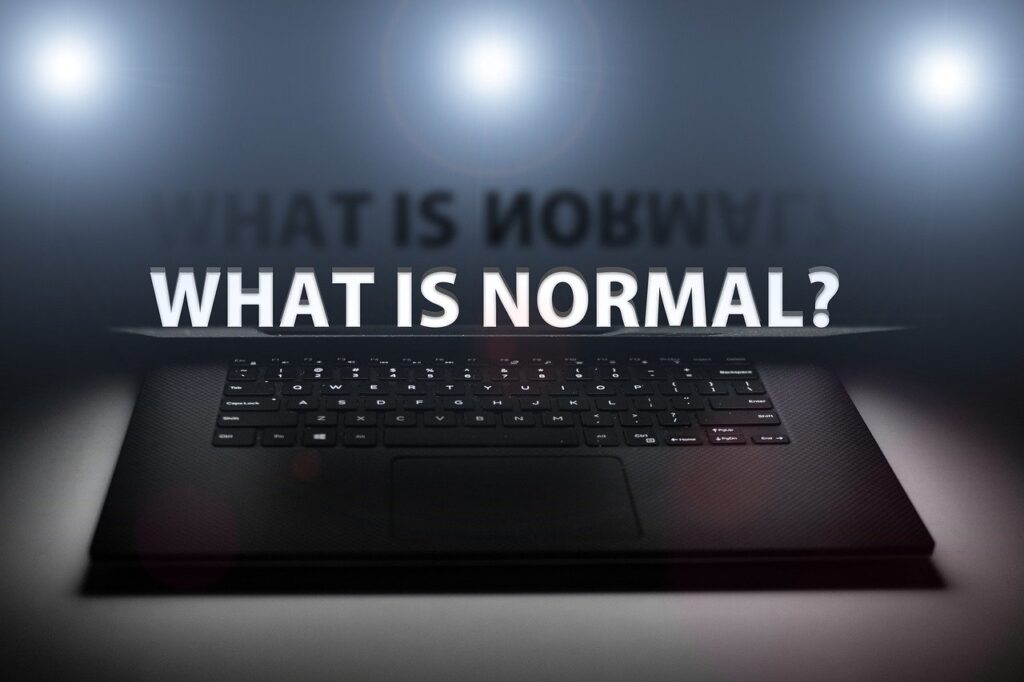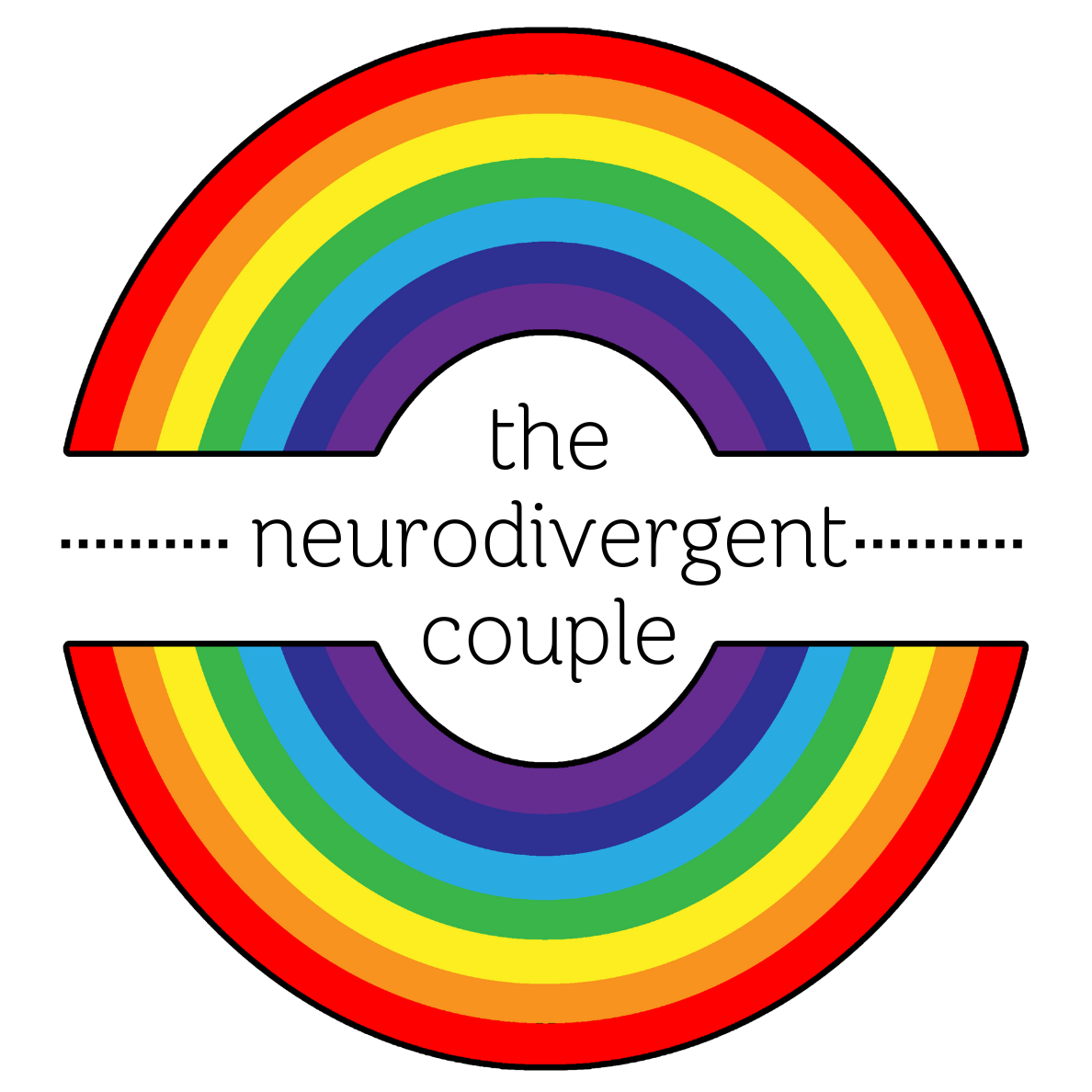
A quick note: A quick word about terms pertaining to conditions and experiences of those with ADHD symptoms or any kind of diagnosis. They are highly personal and far from universal. My use of the terms below reflect the experiences of my family. I am more comfortable with calling myself “neurodivergent” and saying “I am bipolar”. I recognize not everyone feels the same.
But what is neurodivergence?
Broadly speaking, it means functioning or processing differing from what is considered typical or normal. Although, “normal” itself is a word that sets off complex feelings for many. I will very confidently and gleefully look you in the eye and say, “I’m not normal,” with my quirky little smile.
The power of a message is never with the sender. Rejection rests firmly in the hands of the listener with a simple, “Nope”. Or, if you want a coup de grace to leave them reeling, “Well, now you’re just not making any sense.” Admittedly, my love for snark and irreverence is something that people will tell me they enjoy while we’re alone. However, in the presence of critics they are reluctant to follow my lead.
More than a soundbite.
Neurodivergence is a bit of a buzzword lately, like bipolar disorder was about 10 years or so ago. Historically, people could have a good day and then, for example, start crying because they heard a beloved pet died (which is totally valid, in my opinion). Often, they would find people sneering at them and saying, “You’re so bipolar.” These days if someone walks into a room and can’t remember why, it’s almost chic to sigh dramatically and say with disgust, “I’m so ADHD”.
Neurotypical people have brain farts all the time. Yet, for someone with a neurodivergent condition, compensating for them often goes far beyond setting a reminder on their phone. Even beyond possibly putting their keys on a hook right by the front door. More often than we’d like, a thought succumbs to the swirling vortex of our minds. The only hope is to wait patiently to see if it bobs to the surface again. That may take 20 minutes, or in my most dramatic case, 20+ years.
Like anyone, I can be awkward in most social settings. But it is important to me to be frank about my experiences I’ve mentioned a couple of my conditions in my bio introduce you to some of the conditions that make up my internal board of directors:
What is bipolar disorder?
I’ll take mood disorders for $1,000! But for clarity – it’s not “mood swings” in the everyday sense. I’m gonna say that again for the people in the back (and those two women from my Abnormal Psych course) – it’s not “mood swings”.
Let’s say you wake up feeling rather good. You meet up with a friend for lunch and some light conversation. You’re probably in a good mood, right? Now, between appetizers and the entrées that friend says they slept with your partner last week. And oh, by the way, their doctor told them they have an STD, so you should probably be tested. You’re not going to be in a good mood anymore. In fact, there’s so much WHAT THE HELL?! happening in that exchange that you’d probably be angry and start raising your voice.
You went from a good mood to pitched anger in a few moments. Is it right to call that BP?
Nope.
I’d be more concerned if you didn’t show any signs of anger in a situation like that. As much as rapid cycling is a reality for some, though, don’t believe the Hollywood hype. BP swings vary from person to person in terms of degree and longevity, but typically BP mood fluctuations last for several days to several weeks. Before I found a good medication rotation, mine lasted, on average, 16 weeks (about 3 and a half months) with transition periods lasting 8-10 weeks (about 2 and a half months).
Also, BP swings don’t always follow an obvious trigger like the scene above. My swings are triggered by seasonal shifts in late afternoon light temperature and interruptions to my sleep routine. In fairness, I do tend to become more depressed for longer periods after a loss. Especially when I am present for the passing.
BP also doesn’t always look like “performing arts bipolar”. Typically, bipolar characters in TV shows and movies are more like caricatures of the BP. They are promiscuous to a fault, horrible with money, prone to hysterical highs and self-destructive rages. Guess what? That’s just one flavor in the bipolar jellybean mix.
Don’t fall for stereotypes.
There are many with BP who never experience full-blown mania but reach a depth of depression that confuses and horrifies someone else whose moods are so full of pitched energy that their experiences of despair are heavily colored by manic anxiety or rage. In case you missed it above, here is another link to Dr. Eric Youngstrom’s interview on the Myths and Realities of Bipolar Disorder over at APA.org.
What is ADHD / ADD?
ADHD seems like our family’s stock-in-trade. My husband, my son, and I (and we suspect my mother, too) all have ADHD to varying degrees. Once upon a time, there was a clear distinction between ADHD (with hyperactivity) and ADD (no or little hyperactivity). My husband tends toward the inattentive type, while my son shades more into the hyperactive type. There is also a combined type, although recent studies argue that all three types exist on a continuum, with individuals passing among and across each fluidly. I’m not sure I agree with that.
My husband couldn’t be hyper even if you hooked him up to an IV of Red Bull. Any time that I have been hyper has been triggered by excesses of caffeine (over 300mg at once, like pretty much anyone else coming down the pike) or in response to stimulating prescription medications like Focalin. The first time I was put on Prozac, which was around the time a friend of mine had taken her own life, I slept about 4 hours a night and my mood was dangerously elevated. In hindsight, that should have been a clear sign to my providers that I was bipolar, not nearly a decade later after struggling in college.
Delayed diagnosis
Neither my husband nor I were screened for learning differences when we were young. If it hadn’t been discovered years ago that ADHD symptoms can actually continue into adulthood, we could still be going through life thinking we’re irreparably broken.
For my husband, the “out of sight, out of mind” aspect of ADHD is his most common symptom, followed by hyper focusing. We are going on 3 weeks of asking him to move his things out of the way of my houseplants in the dining room so we can water them. Unless I physically walk him into the room and watch while he moves his tools, it’s probably not going to happen anytime soon. Thank God for succulents!
For me, I grew up with educators and doctors who felt ADHD was something that only happened to boys who didn’t come from “nice families”. I have no idea if that meant that they had less financially secure home situations. Maybe it was one of those thinly veiled expressions that adults use to hide their prejudices in plain sight, but “good little girls from fortunate families” were definitely and emphatically not the sort who were diagnosed with ADHD.
We were lazy. And we were intellectually indolent. Not to mention we were self-centered and self-indulgent. We were any number of things, but most definitely not experiencing impairment.
So, I learned to compensate to stay out of trouble. For me, that means having up to 5 or more projects going at the same time, both facilitated and hindered by my other comorbidities, which include dyscalculia and social anxiety, among others.
Why are we talking about this now?
In the face of mixed messages, I prefer being open and frank about my conditions. Ironically, that often meets with loud criticism, particularly from peers. But I do so for a specific group. They are the people on the fringes of the classrooms or social functions. The people who distance themselves while my detractors amp up for a grand performance, but invariably find their way to me in the aftermath to say, “I like how you’re always just yourself, no matter people say.”
Many neurodivergent individuals, particularly those of us with trauma in our pasts, often find their struggles left invalidated. Sometimes this takes the form of a person we value dismissing us with, “You think you’ve got it bad…”
Yet, there is no empirical measure of psychosocial distress. A 5 on someone’s mood scale may be an 8 to another. What is important – unconditionally and undeniably important – is recognition that when someone is saying to you, “I am struggling”, it is not an invitation for you to belittle them with an emotional yardstick. Each of us experiences joy and suffering, and in that, we are all equal.


